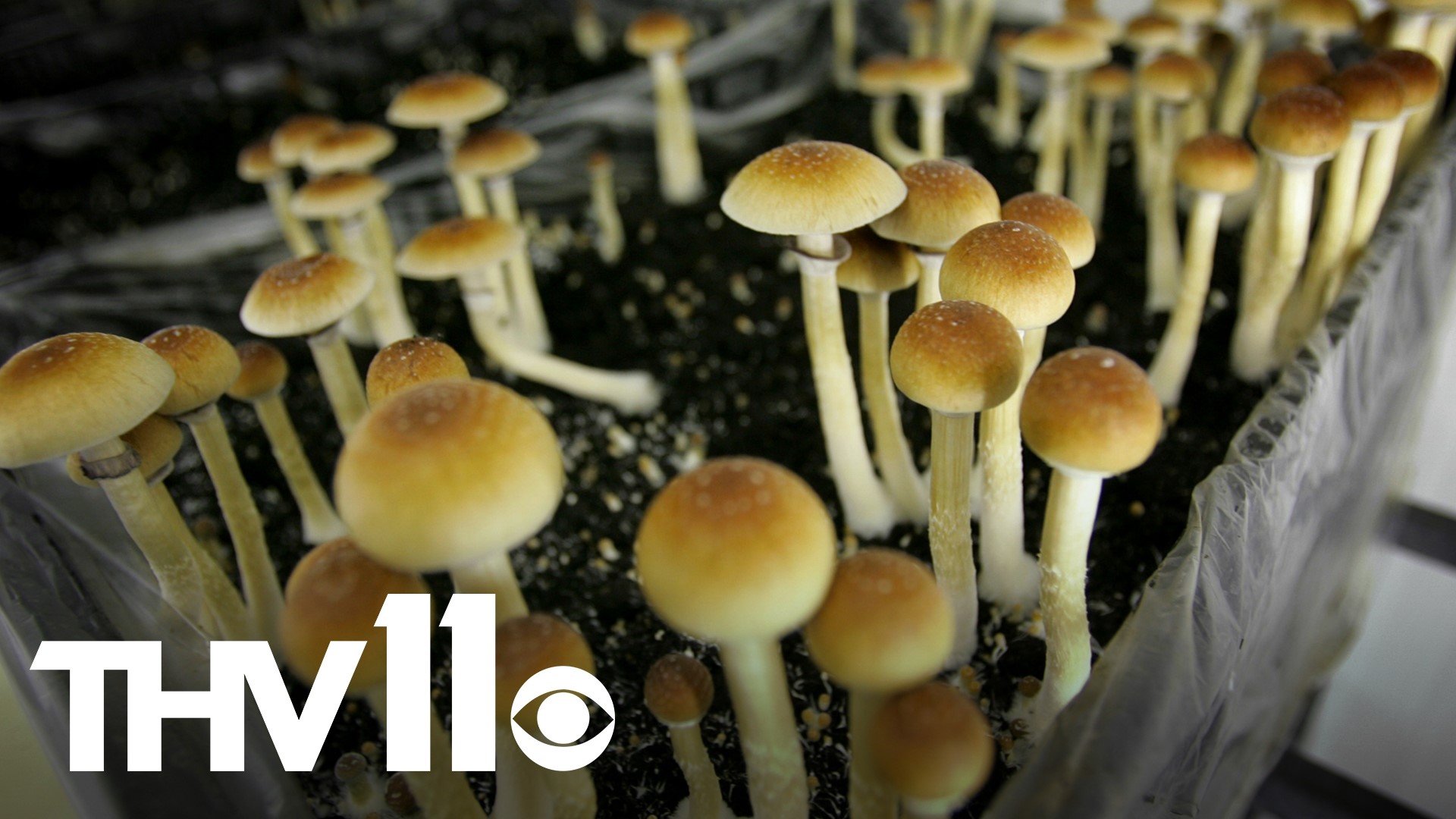FAYETTEVILLE, Ark. — Therapists practicing in the Sarah Ridge House, the oldest building in Fayetteville, are pushing some very new-age ideas. Angie Leek is a trained counselor with the Multidisciplinary Association for Psychedelic Studies or MAPS.
Just up the stairs is William Symes who trained to be a minister, worked as a therapist for decades, and today advocates for using psychedelic drugs to treat some of the most common mental health ailments.
Both say they're backed by a flood of promising data and insist theirs is not a fringe opinion.
"It's a paradigm shift," said Leek. "I think there's huge demand because what we have currently doesn't always really work that well."
"The research and evidence is astounding, no question about that," said Symes.
Leek has been a family counselor her whole life, helping patients work through depression and anxiety brought on by trauma or mental imbalances. Her career in psychology has tracked alongside the growing use of medicine in psychiatry. But from her vantage point on the chair next to the counseling couch, the leading drugs are lacking.
Similar feelings prompted the world's finest research institutions like Johns Hopkins University down a path lined with magic mushrooms and party drugs, and their findings have been eye-opening, if not mind-blowing.
"When you see a person overcoming their fear of dying from cancer and their depression and then a year later, they're still alive and they're not depressed. They're not anxious. That's a real home run," said Symes.
Those results come from a study of cancer patients suffering from depression. More recent research showed that two doses— or "trips"— on the drug in mushrooms brought profound and lasting relief for most participants.
"Basically the ability to reduce the symptomology, considerably," Symes said. "70 to 80% erasure of the symptomology."
"Sometimes rapid change, and sometimes very long-lasting change," said Leek. "That's not like anything else we really have right now."
There are four drugs that are in various stages of going from illegal to legal being studied by researchers and the FDA.
Ketamine has gone from disco drug to treatment for PTSD already, with practices offering it in Little Rock right now.
Then there's medical marijuana, which is obviously legal in Arkansas, though actual evidence of its effectiveness is limited because federal law prohibited studying it for decades.
Then there's MDMA (ecstasy or molly) and psilocybin (the stuff in 'shrooms). The latter is a true psychedelic but both send the mind and body to a heightened state of awareness and that, along with therapy, opens the door to treating issues buried in a person's psyche.
"If people are able to access these really difficult and painful memories and they're able to do that in a very supportive environment, when that memory file gets closed and tucked away again, it's now essentially re-encoded with this more positive experience," said Leek.
Those experiences are why Leek's phone rings off the hook with each new bit of data only to have to tell them that these drugs remain illegal. She points out that they are not without risks. Since the drugs mainly amplify feelings, if those feelings are painful a trained counselor or guide needs to be there to navigate the experience.
So far, patients needed to join research studies had narrow and strict requirements. But Symes thinks it won't be too much longer before more people get the chance for a couple of reasons.
"We're talking about maybe 18 months, for federal approval of use of this," he said. "First it will probably be MDMA and maybe the year after that psilocybin."
That's moving at the speed of the federal government. But another path to legality could come through states. A number of them, led by Oregon, have passed laws that open the door either through sanctioned therapies, so-called "right-to-try" laws, or outright legal recreational use.
That path drags these drugs into the decriminalization debate and draws criticism from law enforcement leaders in Arkansas.
"I think a lot of the push to [use these drugs] is because of popularity not necessarily their effectiveness," said Kirk Lane, the state drug director. "There's been a lot of exploration over the years and I don't think the FDA is moving as fast as some people think because these can be dangerous and for some people can be their downfall."
The two counselors in Fayetteville have their own opinions on decriminalization, but for now, they're patiently waiting for either the local or federal roads to open.
And to them, it can't come too soon.
"This isn't a state line issue or a partisan issue," said Leek. "It's an issue of people suffering and needing relief."
"The good it will do for rescuing people who live in hell is really too powerful to ignore," said Symes.

